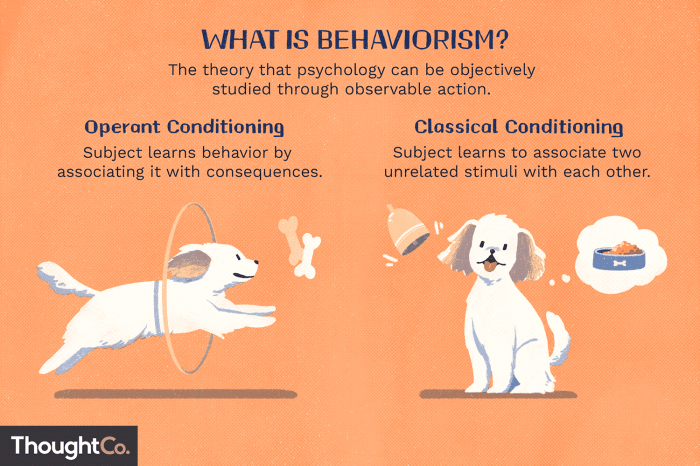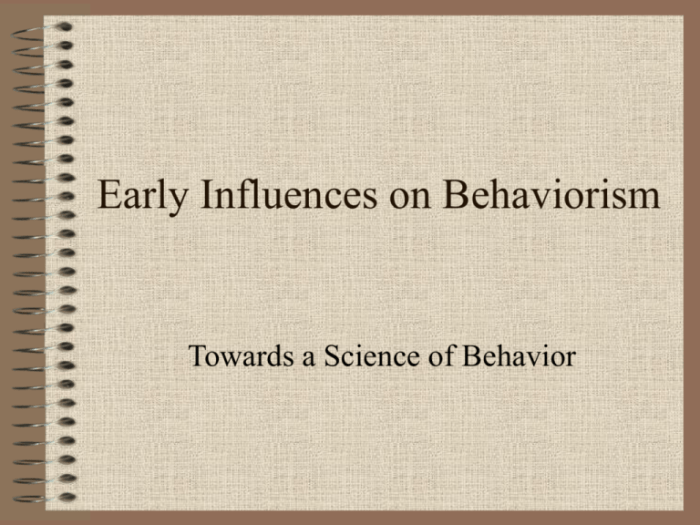Behaviorism encouraged psychologists to ignore the study of – Behaviorism, a dominant psychological paradigm in the early 20th century, encouraged psychologists to ignore the study of mental processes, shaping the field’s trajectory and our understanding of human behavior.
This article delves into the fundamental principles of behaviorism, its impact on psychology, and the subsequent cognitive revolution that challenged its dominance. By examining specific examples of phenomena neglected by behaviorists, we highlight the limitations of their approach and the importance of a balanced understanding of both behavior and mental processes.
Behaviorism and its Impact on the Study of Psychology: Behaviorism Encouraged Psychologists To Ignore The Study Of

Behaviorism, a dominant school of thought in psychology during the 20th century, emphasized the objective study of observable behaviors while largely ignoring mental processes. This approach significantly influenced the field of psychology and led to advancements in understanding behavior through experimental methods.
Examples of Phenomena Ignored by Behaviorism, Behaviorism encouraged psychologists to ignore the study of
Behaviorism’s focus on external behaviors resulted in the neglect of certain psychological phenomena, including:
- Cognitive processes: Thinking, problem-solving, and memory were considered internal and inaccessible to direct observation.
- Emotions: Feelings and subjective experiences were seen as subjective and difficult to measure objectively.
- Personality traits: Individual differences in behavior were attributed to external factors rather than internal psychological characteristics.
Cognitive Revolution and the Re-Emergence of Mental Processes
The cognitive revolution in the mid-20th century challenged the dominance of behaviorism and highlighted the importance of studying mental processes. This shift led to the development of cognitive psychology, which focused on understanding the mind and its role in behavior.
The Importance of Studying Both Behavior and Mental Processes
A balanced approach to studying psychology that incorporates both behavior and mental processes is essential for a comprehensive understanding of human behavior. By considering both external and internal factors, psychologists can gain a more complete picture of how individuals interact with their environment and experience the world.
Helpful Answers
What are the fundamental principles of behaviorism?
Behaviorism emphasizes observable behaviors, focusing on the relationship between stimuli and responses, and advocating for objective and scientific methods in psychology.
How did behaviorism influence psychologists’ focus?
Behaviorism shifted psychologists’ attention away from subjective mental processes and internal states, leading to a focus on external, quantifiable behaviors.
What are some examples of phenomena ignored by behaviorism?
Behaviorists neglected phenomena such as thinking, language, memory, and emotions, as these were not directly observable or easily measured.


